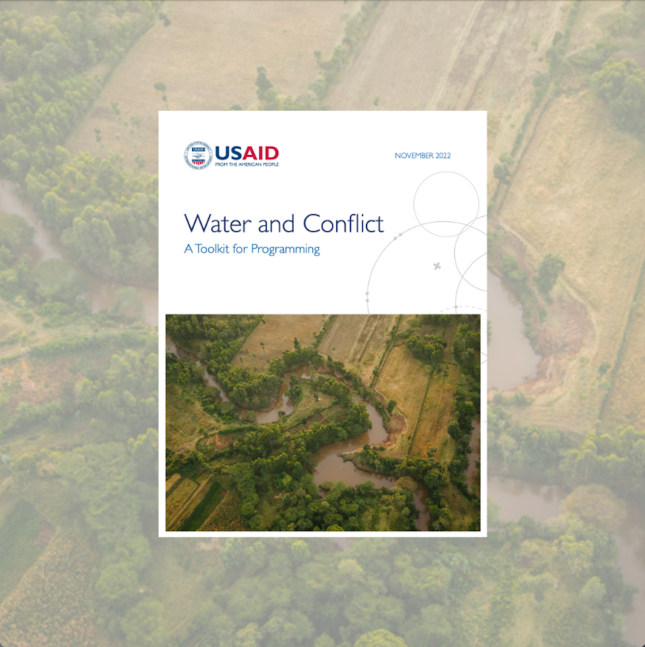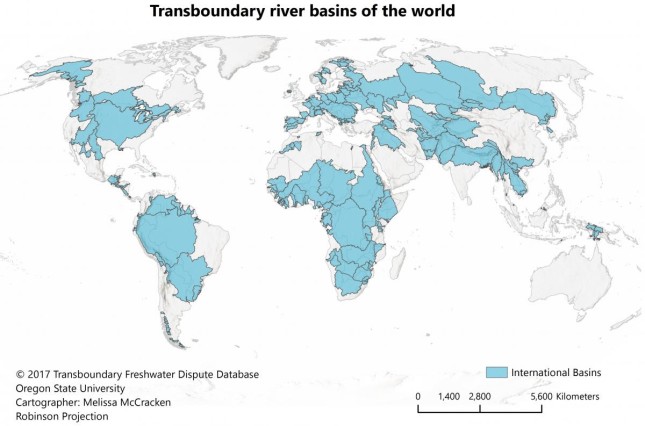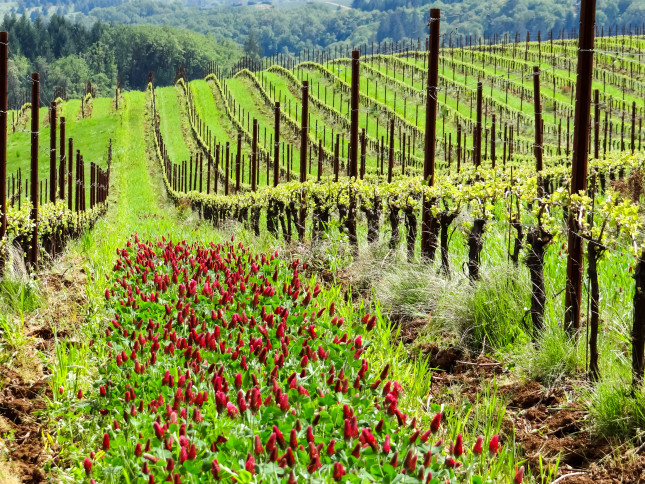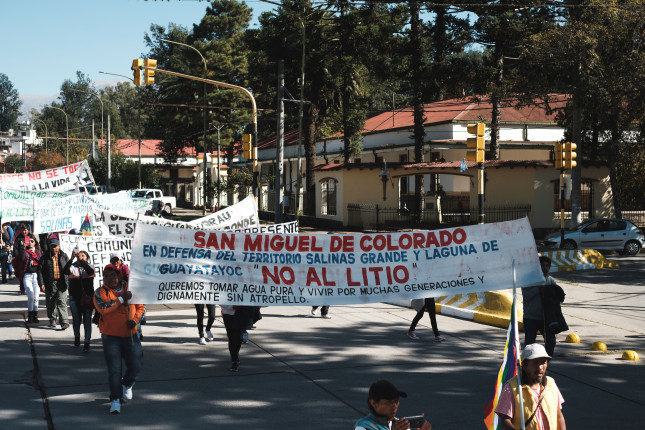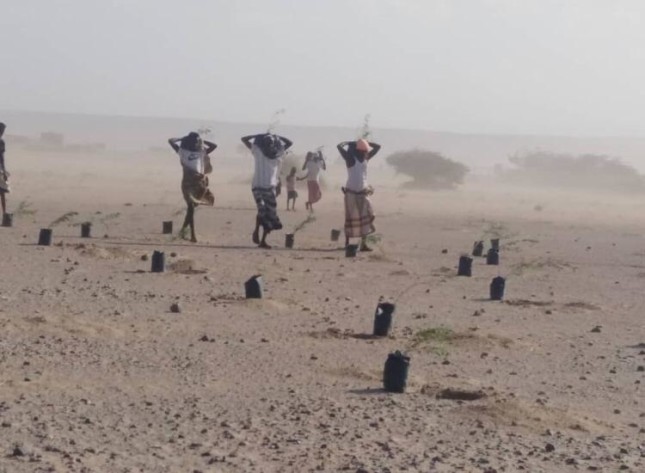-
Women and Art at a Time of War: Acknowledging Ukrainian Women
›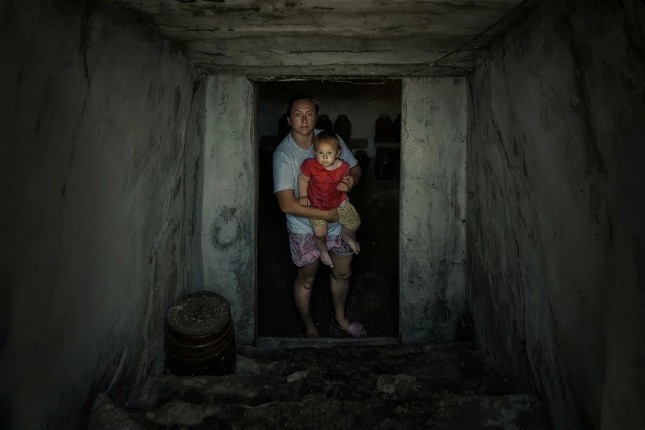
“War is central to history. History has been written (and painted) by men. This exhibition provides a platform for women narrators of history and also examines gendered perspectives of war,” said art curator Monika Fabijanska, referring to the exhibit “Women at War” she recently put together, which was on display at the Stanford in Washington Art Gallery from January through March 2023.
-
USAID’s Revised Water and Conflict Toolkit
›
Links between water and conflict seem to crop up everywhere one looks these days. The Horn of Africa will soon face a sixth consecutive failed rainy season in 2023—its worst drought on record. Not only is this drought a consequence of global climate change, but it has also led to widespread food shortages and local civil conflicts. And over the past year in Ukraine, Russian troops have directly damaged that nation’s already vulnerable water systems, including pipelines, pumping stations, and treatment facilities. These repeated attacks on water infrastructure have not only undermined local livelihoods in Ukraine, but they have also polluted surface waters and threatened biodiversity.
-
The UN Water Conference and Latin American Transboundary Waters: A Case for Better Governance
›
In recent decades, the international system has undergone profound changes—especially in terms of the types of threats that destabilize international peace and security. As new threats emerge, a focus on new dimensions of the concept of security is now reaching the top of the international agenda. In this context, the global freshwater crisis is beginning to be perceived as an existential threat to states requiring extraordinary measures to alleviate or solve the problem.
-
Tracking Conflict and Cooperation Over the World’s International Freshwater Resources
›Guest Contributor // March 20, 2023 // By Alexandra Caplan, Melissa McCracken, Susanne Schmeier, Zoe Rosenblum & Aaron Wolf
Waters that cross international political borders can drive the countries that share them to conflict—or encourage cooperation between them. Indeed, since the 1940s, overall trends point to a tendency for countries to cooperate over shared water resources, which stands in stark contrast to media portrayals of “water wars.”
Yet instances of conflict over water have increased slightly since 2000. Why? Most of them are fueled by water quantity disputes or the unilateral development of dams or other infrastructure. Institutions often play a key role in facilitating cooperation (and reducing conflict) over shared waters, but their growth and adoption have slowed over the last two to three decades.
-
Soil’s Key Role in Fighting Climate Change in U.S. and Chinese Agriculture: The Wisdom of Dr. Rattan Lal
›Soil degradation affects one-third of the Earth’s surface, triggering dust storms, floods, and landslides. It is also a global threat to our food supply, and diminishes the soil’s ability to sequester carbon to mitigate climate change. China has only 0.21 hectares of agricultural land per person, which is well below the global average. Worse yet, over 40 percent of that land is already degraded.
-
Climate Security and Critical Minerals Mining in Latin America: How Can Business Help?
›Guest Contributor // March 7, 2023 // By Héctor Camilo Morales Muñoz, Johanna Dieffenbacher, Raquel Munayer & Beatrice Mosello
The amount of critical minerals required to develop low-carbon energy technologies is predicted to be six times higher than what is needed today. Yet meeting this demand is necessary to enable a global transition that will address climate change and comply with agreements such as the European Green New Deal.
-
Can the Growing Trans-Pacific Wildlife Trade Be Stopped?
›
Today’s celebration of World Wildlife Day is a perfect time to focus greater attention on the rapidly growing Latin America-to-Asia wildlife trade. It now has reached crisis proportions, with both illegal and legal shipments rising in tandem with China’s economic investment in the region.
Experts link this mushrooming trans-Pacific animal trade to large-scale development projects by Chinese companies. Over the past 15 years, two state-owned Chinese banks have loaned more than $140 billion for infrastructure, road, railway and mining projects in Latin America.
-
Climate Security in The Horn: Crafting a Broader Role for Non-State Actors in IGAD
›
The Horn of Africa now faces an unprecedented drought, with conditions not seen in the last 40 years. The implications of this looming catastrophe reach beyond the most recent severe drought periods in the region, which occurred in 2010 and 2011 and again in 2016 and 2017.
As of November 2022, over 36 million people in the Horn were affected by drought, including 24.1 million in Ethiopia, 7.8 million in Somalia, and 4.2 million in Kenya. More than 20 million children in Djibouti, Ethiopia, Kenya, and Somalia need immediate water and food assistance. In addition, nearly 1 million pregnant and lactating women are acutely malnourished. Since mid-2021, more than 9.5 million livestock have perished in the region due to a lack of water, starvation, and disease.
Showing posts from category Guest Contributor.


